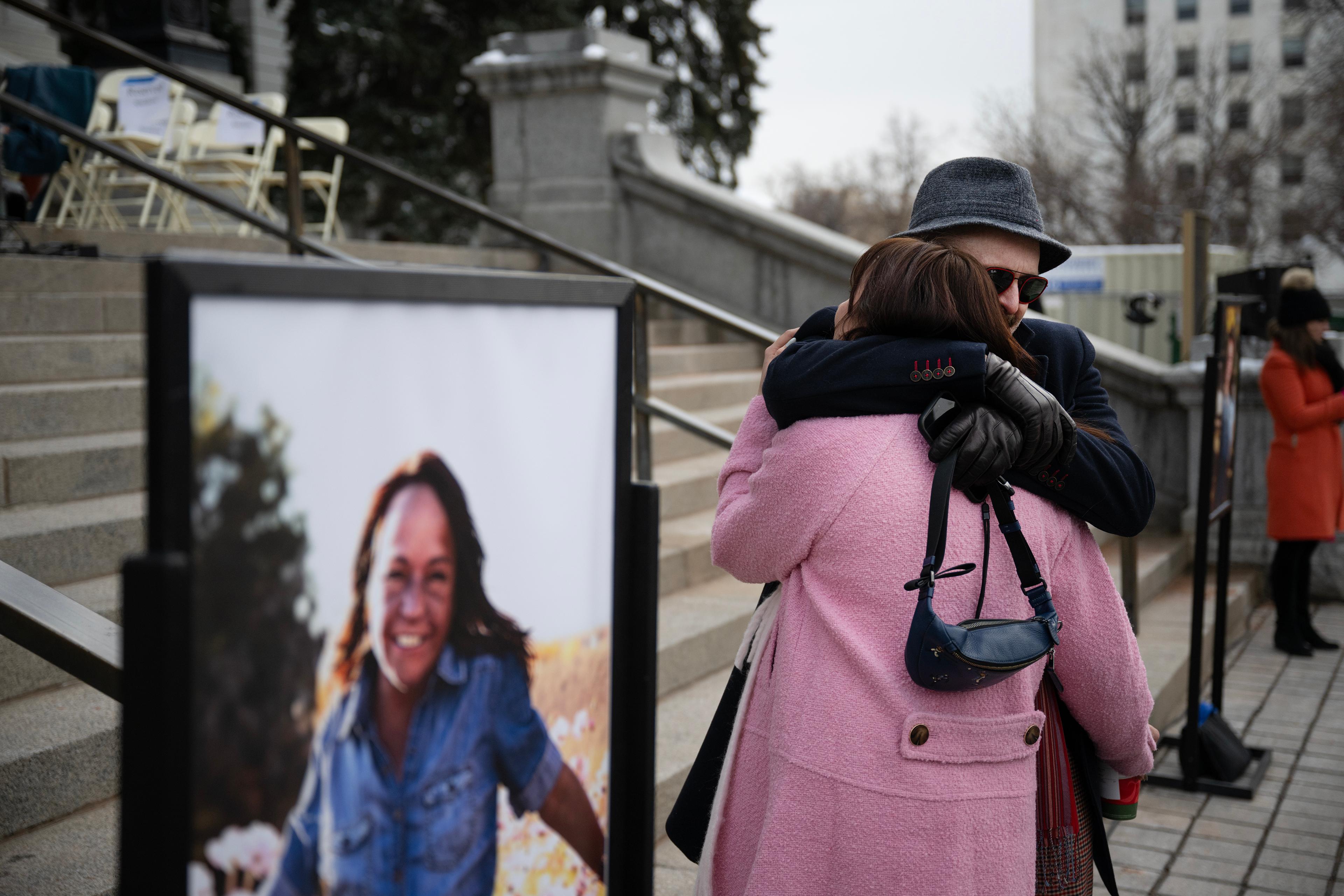
Daniel Junge has won an Oscar and several Emmy awards. He’s screened work at the Toronto Film and South By Southwest festivals.
Yet there’s one honor that has remained just out of reach: acceptance to the Sundance Film Festival. But that’s about to change for the documentarian, who has tackled subjects as diverse as acid attacks in Pakistan and LEGO fandom.
“Sundance has always eluded me,” Junge says. “You know the stars have just never aligned. So in some ways, even after the Oscar, this is the ultimate.”
His documentary “Being Evel” premieres Sunday at Sundance. It’s about American daredevil and international sensation Evel Knievel. Junge calls it a passion project. It’s a departure for the director, whose past work has tended to focus on social and political issues.
"I wanted to prove to myself as a filmmaker that my success wasn’t based on the importance of my subjects and more on how I’m presenting and telling a story,” he says. “There has to be a lot of adrenaline in the film, and it’s kind of a more aggressive film than I’ve ever made.”
Junge once again worked with Denver production company MilkHaus. The team traveled to more than 10 cities to shoot interviews with 60 subjects, including Knievel’s family, friends and fans.
“He’s taught me a lot about the efficiency of storytelling,” says close collaborator Davis Coombe, who co-wrote and edited “Being Evel.”
“For as long as I’ve known him, he’s got 10 or 12 things in the back of his mind percolating.”
“Being Evel” is one of four projects Junge has worked on in just the past year. The movie marks his tenth attempt to make it into Sundance and his first screening at the renowned Utah festival.
Junge has sought this achievement since first volunteering as a print runner at the major independent film festival in college. In 1994, he stood in a projection booth to watch “Hoop Dreams,” which went on to win the Audience Award for Best Documentary.
“That was a very impactful moment for me,” Junge says.
This year, Sundance received 4,105 feature-length submissions. A total of 123 received invitations. That includes two other Colorado pictures: “Racing Extinction” by Louie Psihoyos -- who directed 2010’s Oscar-winning documentary feature “The Cove” -- and “Cop Car” starring Kevin Bacon and directed by former Colorado Springs resident Jon Watts.
Programmer Hussain Currimbhoy helped choose the documentaries, including “Being Evel.” Rolling Stone calls the movie a must-see at Sundance.
“In this case that era of nostalgia of looking at the U.S. in a weird cultural way is coming back,” he says. “It’s made in a really cool way, it has a great style to it, and it’s clear he has talent.”
Junge’s interest in storytelling stems from his childhood. His father, Mark, worked as a historian for the state of Wyoming. Growing up in Cheyenne, Junge often tagged along with his dad on research trips.

“My father was and remains interested in people from all walks of life and that everyone has a story to tell,” the director says. “It shows that so much of what I do has come from my father.”
Junge graduated from Colorado College in 1992. There he took a class with visiting professor Sydney Pollack, the Oscar-winning director of flicks like “Tootsie” and “Out of Africa.”
“It really made the process of filmmaking tangible to me, and I decided there and then that I was going to be a filmmaker,” he says.
His first feature-length documentary arrived a decade later. “Chiefs” chronicled the Wyoming Indian High School basketball team’s quest for a state championship. Donna Dewey -- Colorado’s first Academy Award-winner -- produced the film.
“Daniel is an incredibly persistent and committed person,” she says. “He’s very much a perfectionist, but he’s also willing to take advice.”
“Chiefs” earned the Grand Jury Award at the 2002 Tribeca Film Festival in New York. And in 2012, after directing 10 more projects, he landed his first Academy Award with “Saving Face.”
The 40-minute film follows acid attack victims in Pakistan and the surgeon who helps them. Junge co-directed the work. Collaboration is one of his greatest strengths, Denver Film Society festival director Britta Erickson says.
“Daniel is a person who really understands teams and that no good film really gets made without a team,” she says.
Currently, he’s in talks with Hollywood icon and Sundance Institute president Robert Redford, who’s tapped the director to work on his next documentary.
“I think that Daniel absolutely elevates Colorado’s reputation as a documentary filmmaking hub,” Colorado Film Commissioner Donald Zuckerman says. “We want him to stay here, and we will do anything possible to keep him here.”
“Being Evel” is eligible for a maximum rebate of $94,270 via Colorado’s film incentive program. The creators must prove they spent at least five times that amount on qualifying expenditures in Colorado to receive it all. And Zuckerman says he hopes the incentive program entices the state’s top talent to stay.
For now, the 45-year-old Junge says he plans to stay in Denver. He’s got a family with two young kids. And no shortage of opportunities on the horizon.
This spring he expects to receive his first widespread theatrical release with “Beyond the Brick: A LEGO Brickumentary.” The director hopes to one day make a narrative film, but until then he’ll keep telling as broad a range of real life stories as he can. Two of his upcoming efforts will explore African war crimes and surfing.
“I think the greatest compliment I could get right now is if somebody said, ‘I didn’t recognize all those films as being yours,’” Junge says.









